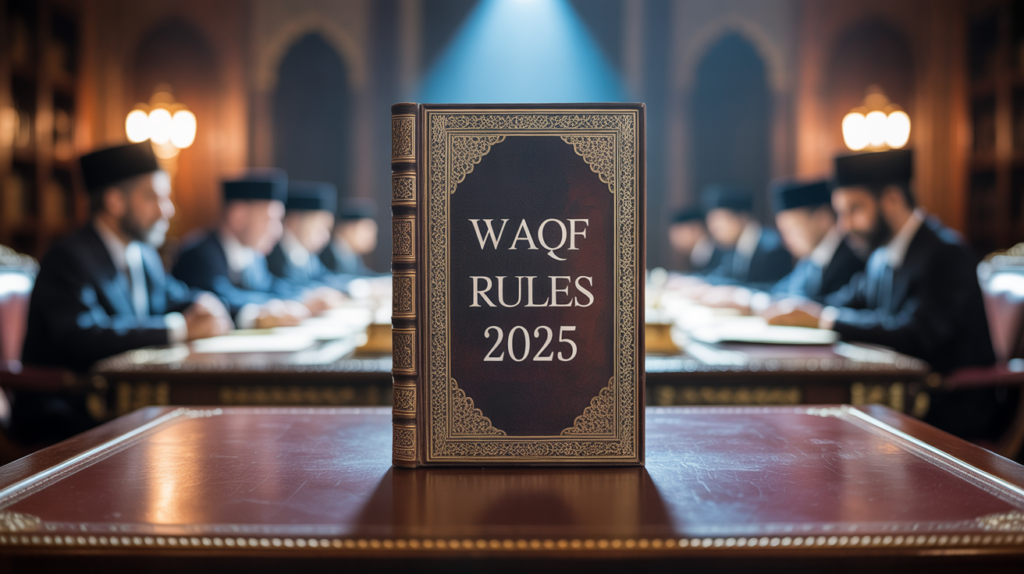Introduction
On July 3, 2025, the Central Government of India notified the Waqf Rules 2025 under the Unified Waqf Management, Empowerment, Efficiency, and Development Act, 1995. These new rules aim to make Waqf administration more transparent, efficient, and accountable, using modern technology and proper systems.
What is Waqf?
Waqf refers to property donated or dedicated for religious, charitable, or welfare purposes under Islamic law. These properties are meant to benefit the community like mosques, madrasas, orphanages, graveyards, or help for widows and orphans.
Key Highlights of Waqf Rules 2025
1. Online Portal and Centralized Database
- A central portal and database has been created for registering and managing Waqf properties.
- All Mutawallis (managers of waqf) must register and upload details of their Waqf and related properties online.
- Each Waqf and its property will be given a unique ID to track and monitor nationwide.
2. Mandatory Digital Enrollment
- Mutawallis must enroll using their mobile number and email ID.
- A One-Time Password (OTP) will be used for verification.
- All future communication and data filing will happen through this online portal.
3. Property Details Filing
Mutawallis are required to file the following information:
- Name and location of Waqf
- Boundaries and use of property
- Waqf documents (if available)
- Annual income from the property
- Court cases or disputes, if any
- Whether the property is government land or heritage-protected
4. Support for Widows, Divorced Women, and Orphans
- If a Waqf has no legal heir or the income is not being used, it can now be used to support poor widows, divorced women, and orphans.
- There’s a specific form for applying for this financial support.
- This will bring social justice and benefit underprivileged women and children.
5. Boards to Monitor and Publish Information
- The State Waqf Boards are now responsible for verifying and updating Waqf records.
- Boards will publish:
- Annual reports
- Audit reports
- Decisions and orders online for transparency
6. Annual Accounts and Audit
- Mutawallis must submit annual income and expenditure reports.
- If income is below ₹1 lakh, a simplified version of the report is allowed.
- Audit reports will also be made public on the portal.
7. Uploading of Waqf List by State Governments
- After completing surveys, State Governments must upload lists of all Waqf properties within 90 days.
- If delayed, reasons must be officially recorded.
Benefits of the New Rules
- Transparency in management of Waqf properties.
- Digital records to prevent fraud, encroachment, and mismanagement.
- Empowerment of Mutawallis with training and structured reporting.
- Protection and better use of Waqf assets for community development.
Conclusion
The Waqf Rules 2025 are a major reform aimed at modernizing the way Waqf properties are managed in India. Through digital systems, defined responsibilities, and support for vulnerable groups, these rules ensure that Waqf serves its true purpose — helping the community and preserving religious endowments with honesty and efficiency
Note:The above content is based on the official rules notified by the Central Government under the Waqf (Amendment) Act, 2025. The government claims that these rules aim to protect and preserve Waqf properties from misuse. The writer has not expressed any personal opinion but has only summarized the notified provisions

